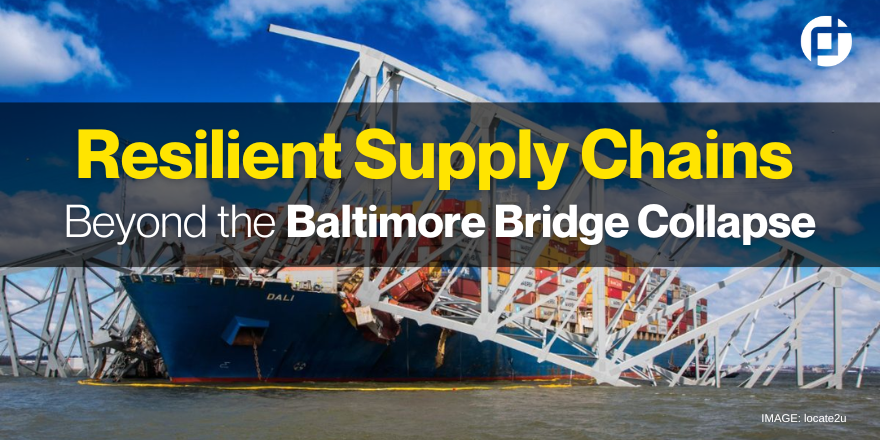On March 26th, 2024, tragedy struck Baltimore when the Francis Scott Key Bridge, a vital artery for commerce, collapsed after being struck by a cargo ship. This incident wasn't just a local disaster; it sent shockwaves through the intricate web of global supply chains. The immediate human cost was devastating, and our thoughts remain with those impacted. But this event also served as a powerful reminder of how vulnerable our interconnected systems can be to unexpected disruptions.
In the aftermath, countless businesses scrambled to assess the impact on their shipments and deliveries. Inventory at the Port of Baltimore became inaccessible, and rerouting cargo added significant delays and costs. This real-world example highlighted the critical need for building resilient supply chains – systems designed to adapt, recover, and keep goods flowing even in the face of unforeseen challenges.
Beyond Efficiency: Building Safety Nets
The traditional focus on lean manufacturing, optimized for efficiency, might not be sufficient in today's complex global landscape. When disruptions occur, bottlenecks emerge, and deliveries stall. The answer lies in building resilient supply chains that function as safety nets.
Key Strategies for Resilient Supply Chains:
- Diversification: Relying on a single source for raw materials, manufacturing, or even shipping routes creates a single point of failure. Spreading your suppliers and logistics partners across different regions mitigates risk.
- Inventory Buffers: Maintaining a strategic safety stock of essential materials can help bridge temporary gaps caused by disruptions.
- Scenario Planning: Proactively identify potential threats, from natural disasters to political instability. Develop contingency plans to address these scenarios and minimize downtime.
- Real-Time Visibility: Investing in logistics visibility solutions like PlanetTogether Advanced Planning and Scheduling (APS) provides crucial real-time data on inventory levels, shipments, and potential disruptions. This allows for proactive adjustments and faster response times.
PlanetTogether APS: Your Partner in Supply Chain Resilience
PlanetTogether APS empowers businesses with the tools to navigate disruptions and ensure supply chain continuity. Here's how:
- Demand Forecasting: Anticipate future demand fluctuations and optimize inventory levels to avoid stockouts.
- Scenario Modeling: Simulate different disruption scenarios and test potential solutions to identify the most effective course of action.
- Real-Time Tracking: Gain instant visibility into inventory levels, production schedules, and potential disruptions throughout your supply chain network.
- Collaboration Tools: Facilitate communication and collaboration between internal teams and external partners to streamline response efforts.
By implementing these strategies and leveraging PlanetTogether APS, businesses can build robust and resilient supply chains capable of withstanding the inevitable storms. Let's move beyond just efficiency and create systems that prioritize safety and adaptability, ensuring the smooth flow of goods and a more secure future for our global economy.
Topics: SupplyChain





















LEAVE A COMMENT